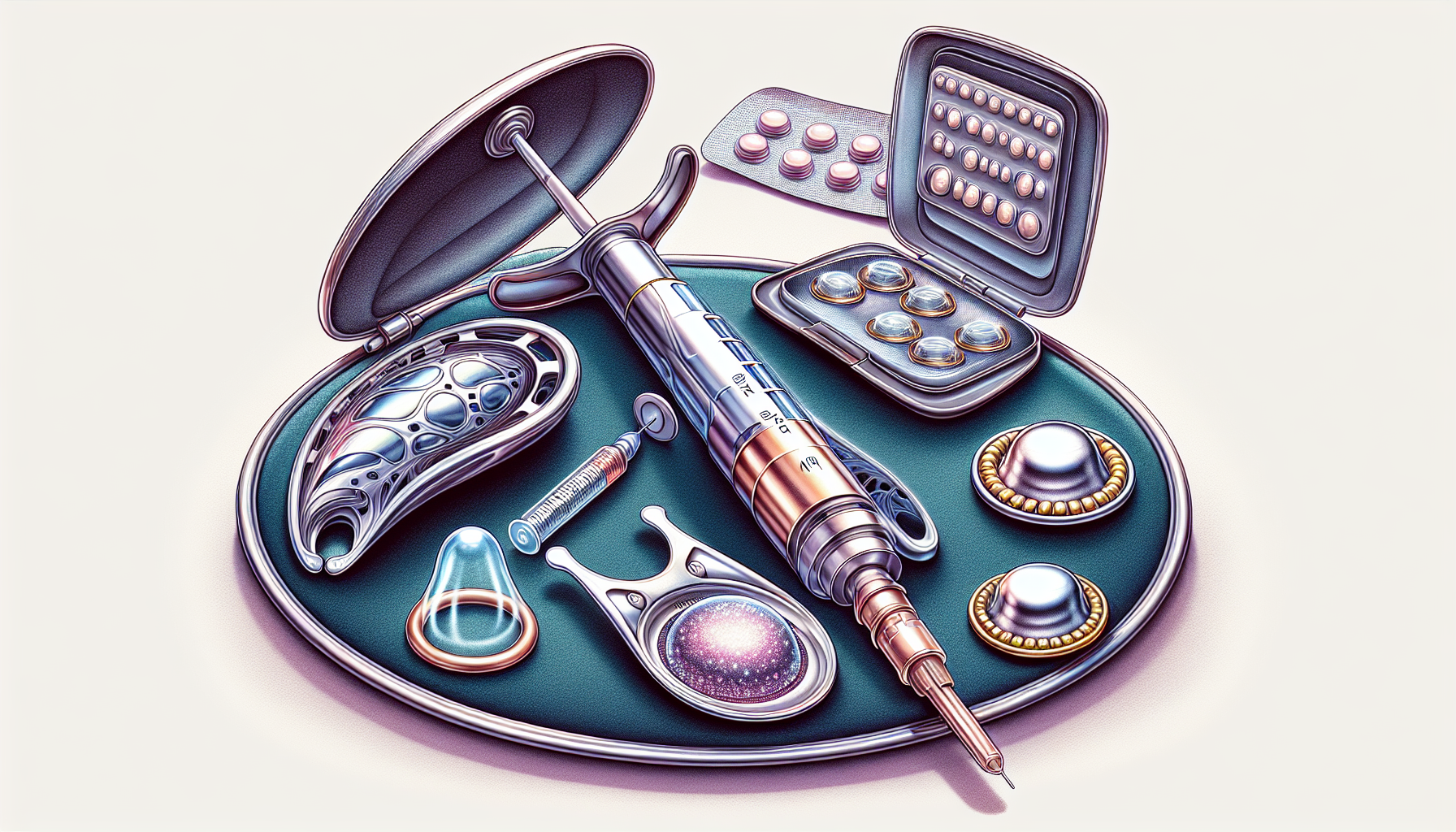
Wondering “when is it safe to orgasim after giving birth”? While the standard advice often points to a six-week wait for a postpartum checkup clearance, individual experiences and recovery processes differ. This article will delve into what factors play a role in this timeline, helping you understand when you might safely return to sexual pleasure postpartum.
Key Takeaways
The postpartum recovery period typically lasts around six weeks, and it’s crucial for new moms to wait until they feel physically and emotionally ready before resuming sexual activities.
Communication with both your healthcare provider and partner is vital in navigating postpartum intimacy, from getting the go-ahead for sex to expressing needs and exploring non-penetrative ways to maintain a connection.
Addressing contraception soon after childbirth is important to avoid a quick pregnancy, even if menstruation hasn’t resumed or if breastfeeding; and managing discomfort with lube, trying different positions, and strengthening pelvic floor muscles can make postpartum sex more enjoyable.
Understanding the Postpartum Healing Process

Ah, the postpartum period. It’s a time of joy, wonder, and… a lot of healing. The body’s just done something incredible, and now it needs time to recuperate. The typical timeline for bouncing back involves a six-week stretch where the reproductive organs do their best to return to their pre-pregnancy glory. While some postpartum women feel ready to get back in the saddle relatively quickly, others may find the idea of postpartum sex about as appealing as running a marathon in stilettos. And that’s perfectly okay! Every woman’s recovery is as unique as her new baby, and it’s essential to wait until that inner voice gives the green light, physically and emotionally, before resuming sexual activities—even if that means waiting longer than the general six-week recovery period.
The Role of Hormonal Shifts
Post-baby bedroom blues? Hormonal shifts might be the culprits. After giving birth, a woman’s body is like a busy switchboard, lighting up with hormonal changes as it transitions from pregnancy to postpartum. These fluctuations can play tug-of-war with sexual drive, leaving some new moms wondering where their mojo went.
Add to that the sleep deprivation and the sudden realization that your body looks more like a roadmap of life’s journey than the pre-baby temple you remember, and it’s no wonder that the sex drive might be on a temporary hiatus.
Physical Recovery After Vaginal Birth or C-Section

Whether it’s a vaginal birth or a c-section, the body’s had a workout. C-section mamas often need a bit more time before they’re ready to consider postpartum sex, thanks to the extra healing that’s needed for that tummy incision. And let’s not forget about the vaginal bleeding. This uninvited guest can stick around for up to six weeks, no matter the type of delivery, making the thought of anything going on down there a bit… well, messy.
Emotional Well-being and Readiness
But it’s not just the physical side of things that needs tending postpartum. The emotional rollercoaster that comes with a new baby can make the postpartum period feel like you’re in the middle of a soap opera—complete with mood swings and dramatic monologues about the state of your post-baby body. Reaching out to other postpartum women and engaging in self-care are not just good for a laugh and some solidarity; they’re crucial for boosting that self-image and getting comfortable in your new body, especially when dealing with postpartum depression.
And when the daily grind starts to feel like too much, remember that sharing the load at home isn’t just fair—it’s essential for your emotional well-being, which, in turn, can light the path back to postpartum intimacy. Having those heart-to-hearts with your partner and family about the support you need can play a huge role in how quickly and comfortably you feel ready to resume sexual activities.
The Right Time for Sexual Pleasure

When it comes to resuming your sex life after baby arrives, there’s no one-size-fits-all answer. Some postpartum women are ready to jump back into the fray a few weeks postpartum, while others might prefer to wait longer. The right time for sexual pleasure varies from person to person and depends on a trifecta of personal comfort, healing, and, yes, a thumbs-up from your healthcare provider.
External Stimulation Versus Penetrative Sex
Let’s talk options. If the thought of vaginal intercourse makes you wince, but you’re yearning for some closeness, here’s some good news: external stimulation, like a little oral sex or some fun with sex toys, can be on the menu just a few days post-birth. This kind of playtime can be a safer and more comfortable way to ease back into your sex life compared to penetrative sex.
And, for those wondering about the timeline for the full monty, healthcare providers typically advise waiting until at least the four to six-week mark post-birth before attempting vaginal penetration.
Importance of Healthcare Provider Approval
But before you break out the mood lighting and the Marvin Gaye, it’s crucial to check in with a healthcare provider. They’re the co-pilots on your journey to resuming sexual activity, ready to address any concerns and give advice that’s tailored to your unique situation. At your postpartum checkup, they’ll give the go-ahead for sexual activity, including the green light for those internal sex toys you’ve been eyeing.
Don’t be shy—talk to your healthcare provider about any and all questions you have about getting back to your sex life. They’re there to support you and make sure you’re ready, both inside and out.
Reconnecting with Your Partner
After the arrival of a new baby, finding your way back to each other can feel like navigating a maze blindfolded. But fear not! Communication postpartum is your GPS for rediscovering not just the road to sexual intimacy but also strengthening your partnership.
Reconnecting with your partner can be a slow and tender journey, allowing both of you to rebuild that bridge to comfort and confidence in the bedroom and beyond. And remember, intimacy isn’t just about sex. It’s about:
cuddling
sharing baths
giving massages
just being together
These are the building blocks for maintaining a close connection without the pressure of penetrative sex.
Communication Is Key
Let’s face it, mind-reading isn’t a postpartum superpower. Open dialogue is the key to expressing needs and setting realistic expectations for intimacy. Clear communication ensures that both partners are on the same page and helps reduce pressure, making the transition back to postpartum sex more comfortable for everyone involved.
And don’t forget to carve out time for just the two of you, whether it’s movie nights or quiet dinners. These moments can do wonders for your connection and pave the way for a satisfying sex life.
Exploring Non-Penetrative Intimacy
As you navigate postpartum sex, it’s worth exploring all the flavors of intimacy that don’t involve penetration. Think:
Kissing
Mutual masturbation
Massage
Oral sex
These activities can keep the spark alive while you ease back into things. Oral sex, focusing on external stimulation, is a safe bet postpartum as long as you avoid direct vaginal contact to minimize infection risks.
And when it comes to masturbation, it’s not just a solo act; it can be a shared experience that maintains that vital connection with your partner. Using external vibrators is also a go once the external areas have healed, but remember to hold off on the internal toys until after that six-week healing period has passed.
Birth Control Considerations
Now, let’s chat about something that might not be top of mind during the postpartum period—birth control. Believe it or not, it’s possible for postpartum women to become pregnant as early as three weeks after giving birth. So, if you’re not planning on having more children just yet, it’s critical to choose a birth control method shortly after childbirth. And yes, this applies even if Aunt Flo hasn’t returned for her monthly visit or if you’re breastfeeding.
Here are some birth control options to consider:
Barrier methods, such as condoms or diaphragms
Hormonal methods, such as birth control pills, patches, or injections
Intrauterine devices (IUDs)
Permanent methods, such as tubal ligation or vasectomy
It’s important to discuss your options with your healthcare provider to find the best method for you.
Contraceptive Options After Childbirth

When it comes to postpartum birth control, you’ve got options. Here are some options to consider:
Contraceptive implants
Injections
Progestogen-only pills
Condoms
IUDs or IUSs
All of these methods can be started immediately after childbirth. Progestin-only contraceptives come in pill and injection form and are a good fit for new moms. And if you’re considering a combined hormonal method like the pill, vaginal ring, or patch, just wait for the green light from your healthcare provider.
Barrier methods, including condoms, diaphragms, and others, are also a safe bet for postpartum contraception.
Timing for Starting Birth Control
Timing is everything when it comes to starting birth control after childbirth. Your healthcare provider will likely recommend waiting until your postpartum checkup to discuss options and make sure your body’s healed up. Non-breastfeeding mamas can consider combined hormonal contraceptives as soon as three weeks post-delivery, provided there are no risk factors for clotting.
Breastfeeding? You might want to wait about six weeks before starting methods like the combined pill to avoid any potential impact on milk supply. And if you’re thinking about using a diaphragm or cap, make sure it still fits properly post-baby before diving back into action around the six-week mark.
Managing Physical Discomforts

Let’s face it: postpartum sex can be a bit uncomfortable at first, and sometimes even result in painful sex. Between hormonal changes that bring on vaginal dryness and the general fatigue from sleep deprivation, the body might not be as ready as the mind. But don’t fret—there are ways to lessen the pain and make the experience more pleasurable. Here are some tips:
Use personal lubricants
Try different sexual positions to find what feels best
Control penetration depth
Indulge in extended foreplay for increased arousal
These tips can all help make postpartum sex more comfortable.
And don’t forget about those pelvic floor exercises. A little bit of Kegel action can go a long way in enhancing sensation and reducing discomfort by improving muscle strength and circulation down there.
Dealing with Vaginal Dryness
Now, let’s talk about the drought that no one wants—vaginal dryness. It’s a common postpartum complaint, thanks to those plummeting estrogen levels, and it can make sex feel more like a chore than a treat, sometimes even causing vaginal pain. The good news? There are ways to bring back the rain.
Regular use of vaginal moisturizers can help soothe dryness and make intimate moments more enjoyable. And don’t underestimate the power of foreplay. The right amount of build-up can be the secret sauce to combating dryness, enhancing vaginal lubrication, and making sex after birth a lot less painful.
Strengthening Pelvic Floor Muscles
The pelvic floor muscles are the unsung heroes of sexual pleasure, especially after childbirth. Regular Kegel exercises can not only improve pelvic floor strength and tone but also enhance sexual function by supporting the anatomical positions that are key to stimulation and lubrication. Better muscle tone in the pelvic region can lead to increased arousal and satisfaction, thanks to the positive effects on erectile tissues like the clitoris.
And if you’re looking for a little extra help, pelvic floor physiotherapy can be a fantastic way to get those muscles back in tip-top shape and alleviate any discomfort from weakened pelvic support after childbirth.
Summary
Navigating intimacy after childbirth is a unique journey for every new parent. From understanding the healing process to finding the right time for sexual pleasure, reconnecting with your partner, and managing any discomforts, the road back to a fulfilling sex life is paved with patience, communication, and a little bit of creativity. Remember, it’s not just about the destination; it’s about enjoying the ride and rediscovering each other along the way.
Your Emotional Doula & Guide to a Healthy Postpartum Recovery
Embark on your postpartum recovery journey with Shayna Givertz, your Emotional Doula and expert guide through the intricate path of new parenthood. If you’re feeling overwhelmed, lost, or simply in need of a compassionate ear, Shayna is here to offer the support and guidance you deserve.
With her personal experience and professional expertise in yoga and postpartum coaching, Shayna provides a unique blend of emotional and physical support tailored to your specific needs. Connect with someone who understands deeply and can help navigate this challenging yet beautiful phase of life.
Take the first step towards a healthier, more joyful postpartum experience. Sign up now for a free 15-minute consultation with Shayna and start transforming your journey today.
Frequently Asked Questions
When can I start having sex after giving birth?
It’s best to wait at least four to six weeks after giving birth and after your postpartum checkup before having sex. Every person’s recovery is different, so it’s important to listen to your body and follow your healthcare provider’s advice.
Is it normal to feel less interested in sex after having a baby?
Yes, it’s completely normal to feel less interested in sex after having a baby due to hormonal shifts, sleep deprivation, and body image concerns. Just give yourself time to adjust and reach out for support if you need it.
Can breastfeeding mothers use birth control?
Yes, breastfeeding mothers can use birth control. Progestin-only options like pills and injections are generally safe, but it’s best to wait until about six weeks postpartum before considering combined hormonal methods to avoid any impact on milk supply.
What can I do to manage vaginal dryness postpartum?
To manage vaginal dryness postpartum, you can use personal lubricants, engage in more foreplay, and ensure good hydration. If discomfort continues, it’s best to consult a healthcare provider for further advice.
Are pelvic floor exercises really helpful after giving birth?
Absolutely, pelvic floor exercises, such as Kegels, are highly beneficial after giving birth. They can help strengthen pelvic floor muscles, improve sexual sensation, and reduce discomfort during sex. Try incorporating them into your postpartum routine!












